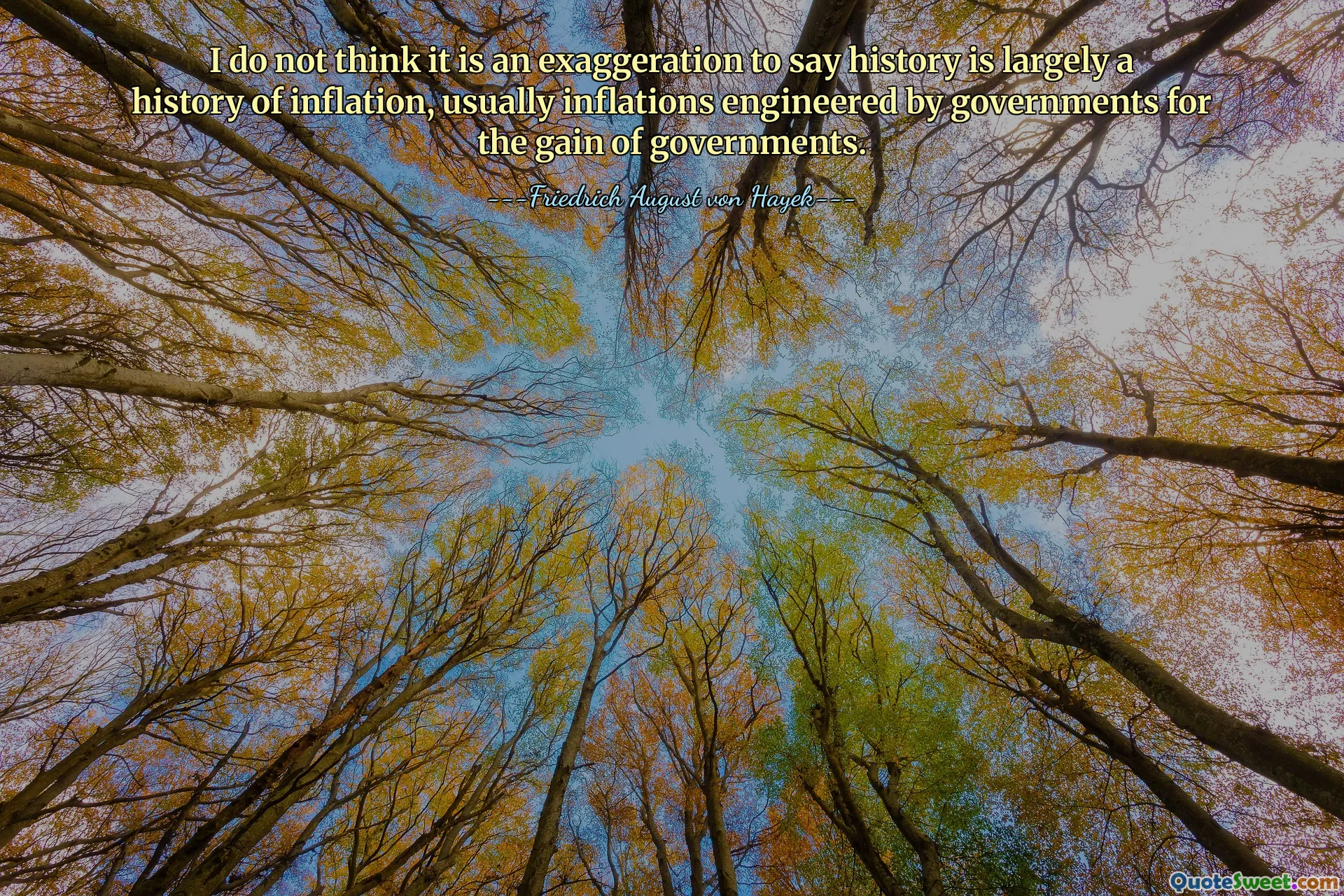
I do not think it is an exaggeration to say history is largely a history of inflation, usually inflations engineered by governments for the gain of governments.
Throughout history, economic inflation has often played a central role in shaping societal and governmental strategies. The quote underscores a rather cynical but historically supported view that many instances of inflation are not accidental but intentionally orchestrated by governments to serve their own interests. This can be observed in various epochs, from the debasement of coinage in ancient civilizations to modern monetary policies that print money to cover deficits. Such actions often lead to a loss of value in the currency, affecting savings and purchasing power, especially for the less privileged. Governments might pursue inflation to reduce the real burden of debt or to stimulate economic activity, but these benefits often come at the cost of increased instability and hardship for ordinary citizens. The inflationary policies undertaken may seem to offer short-term solutions but can cause long-term distortions in economic stability. Recognizing inflation as a tool manipulated for political gain raises critical questions about transparency and accountability in economic policymaking. Moreover, it sheds light on the importance of monetary discipline and the need for checks and balances to prevent abuse. Ultimately, this perspective encourages us to scrutinize governmental actions with a skeptical eye, understanding that economic policies are often intertwined with political motives. The historical pattern of inflation driven by governmental interests reminds us to advocate for responsible fiscal practices that prioritize the stability of the economy and the wellbeing of citizens over short-term political gains.











